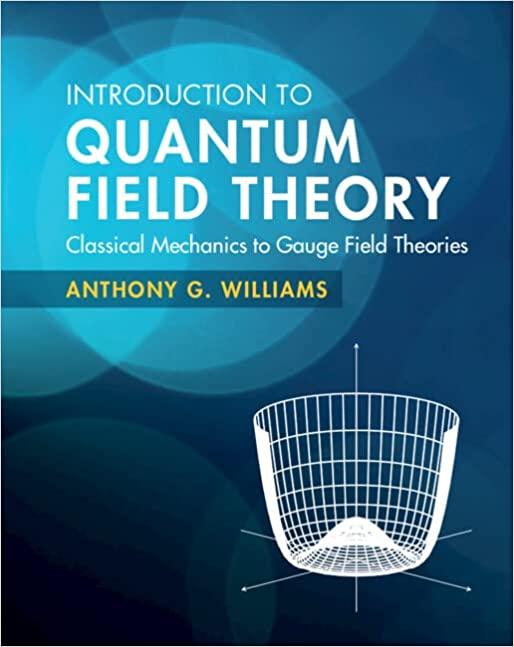(a) Show that the relativistic Lagrangian (L=-(1 / gamma) m c^{2} e^{U / c^{2}}) reduces to the...
Question:
(a) Show that the relativistic Lagrangian \(L=-(1 / \gamma) m c^{2} e^{U / c^{2}}\) reduces to the Newtonian Lagrangian for a particle of mass \(m\) in a gravitational potential \(U\) in the slow motion, weak field limit \(v \ll c,|U| \ll c^{2}\).
(b) Obtain the Euler-Lagrange equations of motion, and show that they can be written in the relativistic form \(d V^{\mu} / d \tau=\left(g^{\mu u}-\left(1 / c^{2}\right) V^{\mu} V^{u}\right) \partial_{u} U\), where \(V\) is the four-velocity and \(\tau\) is the proper time of the particle. Verify that not all four-component equations are independent.
Fantastic news! We've Found the answer you've been seeking!
Step by Step Answer:
Related Book For 

Introduction To Quantum Field Theory Classical Mechanics To Gauge Field Theories
ISBN: 9781108470902
1st Edition
Authors: Anthony G. Williams
Question Posted:





